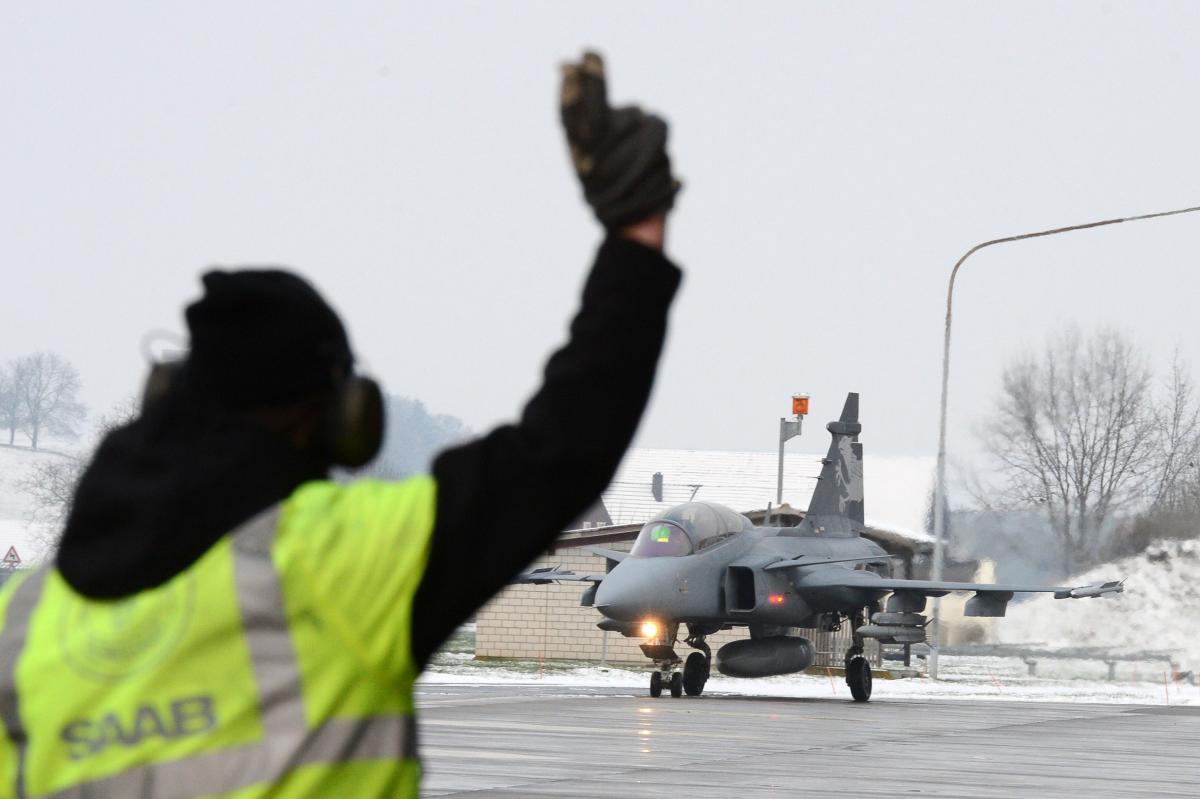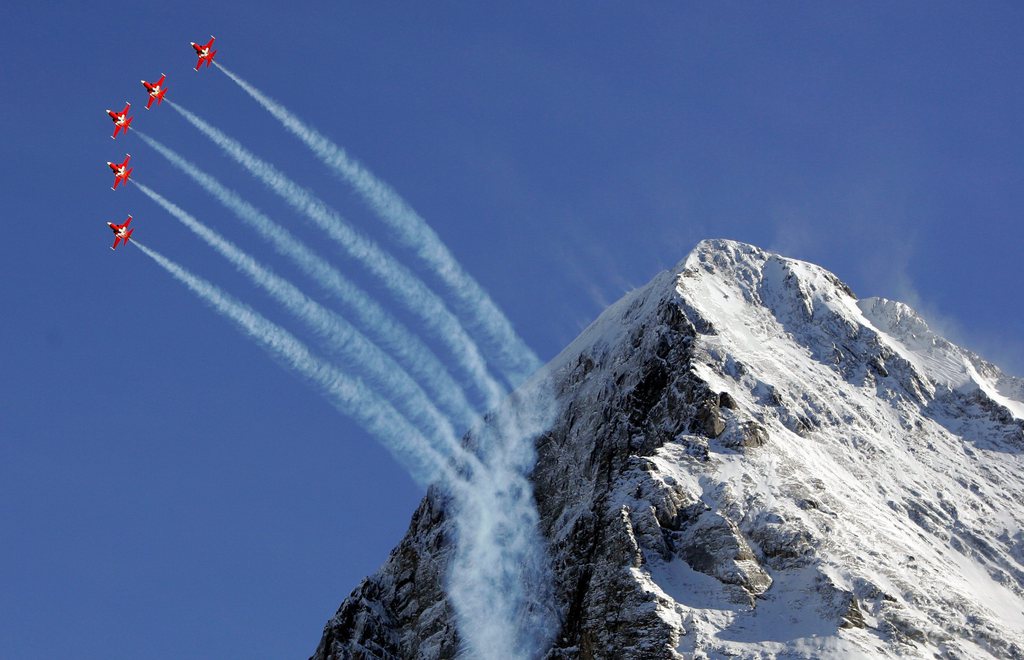Gripen debate comes down to costs versus security

A close decision is expected in Sunday’s nationwide vote on the purchase of Swedish fighter planes for Switzerland’s air force. Centre-left opponents have challenged a parliamentary decision, while the defence ministry has stressed the need for the jets to protect the country’s air space.
Polls closed at midday and final results are expected later in the day.
More than 20 years after a ballot on the controversial acquisition of fighter jets from the United States, voters once again have the final say on the partial renewal of the air force.
But his time round the outcome may not be as clear as in 1993, when supporters won a solid 57% of the vote.
Latest opinion polls, published on May 7, gave opponents a 7% lead with a further 5% of respondents still undecided.
“The mobilisation of voters could be a decisive factor,” says political expert Claude Longchamp of the GfS Bern research and polling institute.
Both supporters and opponents have stepped up their efforts in the last few days, wrapping up weeks of intense campaigning. The focus has been security concerns and the costs – CHF3.1 billion ($3.5 billion) – for the acquisition of 22 JAS-39 Gripen fighter jets made by Swedish company Saab.
Defence Minister Ueli Maurer warned that rejection would jeopardise the country’s defence capability, weaken its economy and its reputation as a centre for major international conferences.
“By scrapping the Swiss Air Force we would not only be shooting ourselves in the foot. It would deal a deadly blow,” Maurer told the Neue Zürcher Zeitung newspaper.
In his campaign speeches Maurer repeatedly pointed out that neutral Switzerland needed a fleet of more than 50 fighter aircraft to keep up a credible defence. Campaigners from most centrist and rightwing political parties also pointed to the current crisis in Ukraine, conjuring up images of the Cold War era.

More
Fighter jet purchase remains up in the air
Cost
An alliance of diverse opponents – pacifists, the political left and many centrist politicians – have one common message: the Gripen fighter jets are a waste of money.
They argue the acquisition and maintenance of the 22 Swedish lightweight aircraft could cost taxpayers up to CHF10 billion – three times the proposed credit.
But up to the end of the campaign there were doubts about the choice of the Swedish aircraft, even among the ranks of the centre-right.
Leaked documents about lobbying efforts by the Swedish ambassador to Switzerland and by the Saab aerospace company made for headlines in the run-up to the vote. Maurer’s criticism of the media coverage added extra spice to the campaign.
Besides the purchase of fighter aircraft, voters will also decide on a proposal by trade unions to introduce a minimum salary of CHF22 ($25) per hour at a nationwide level.
Also on the ballot sheet: an initiative, sponsored by concerned parents, to ban for life convicted paedophiles from working with children. And a constitutional amendment to boost the role of family doctors in the country’s health system.
About 5.2 million citizens, including Swiss living abroad, are eligible to take part in the votes.
A limited number of people can cast their vote online.
Convoluted history
The vote is the latest stage of ten years of evaluation and convoluted political procedures to replace the fleet of 54 F-5 Tiger aircraft of the Swiss Air Force.
The government temporarily shelved plans for new jets before it changed its mind. The Gripen was eventually chosen over France’s Rafale and EADS’ Eurofighter Typhoon four years ago.
But a logjam continued to delay the acquisition. Although the House of Representatives had given its green light, the Senate blocked it. It was only last September that both parliamentary chambers finally gave their approval.
In the meantime pacifist groups sought to impose a moratorium on the purchase of fighter jets. They had collected enough signatures for a nationwide vote, but decided to withdraw their initiative for tactical reasons.
However, it did not stop an alliance of centre-left groups from challenging the parliamentary decision, collecting the necessary signatures to force a nationwide vote.
Army issues – including conscription, fighter jet acquisitions, arms exports and the keeping of army-issue firearms at home – have enjoyed broad backing at the ballot box.
In line with traditional security policy, voters followed the government recommendations 17 times. Only three votes have been lost in nearly 30 years.

In compliance with the JTI standards
More: SWI swissinfo.ch certified by the Journalism Trust Initiative














You can find an overview of ongoing debates with our journalists here . Please join us!
If you want to start a conversation about a topic raised in this article or want to report factual errors, email us at english@swissinfo.ch.